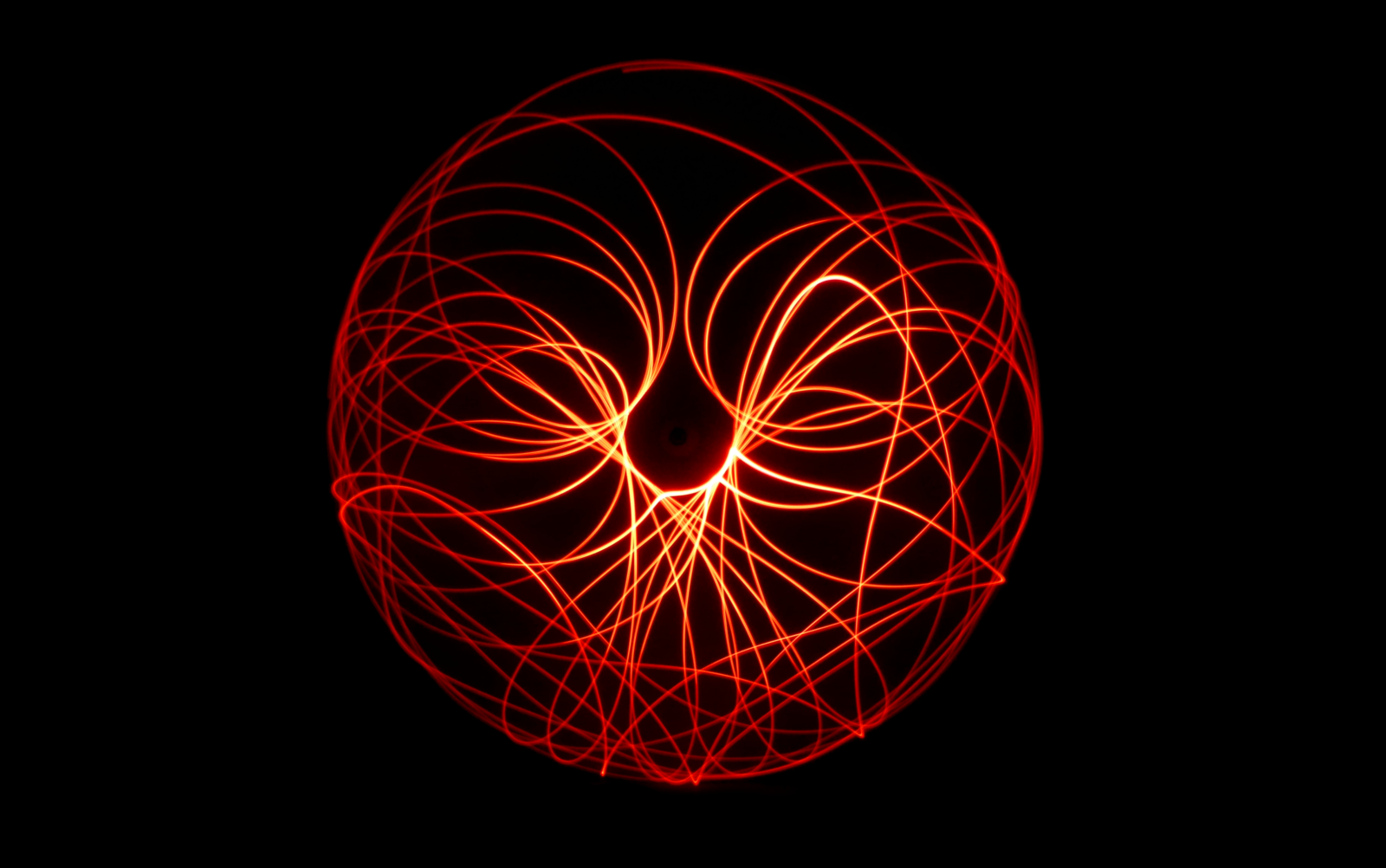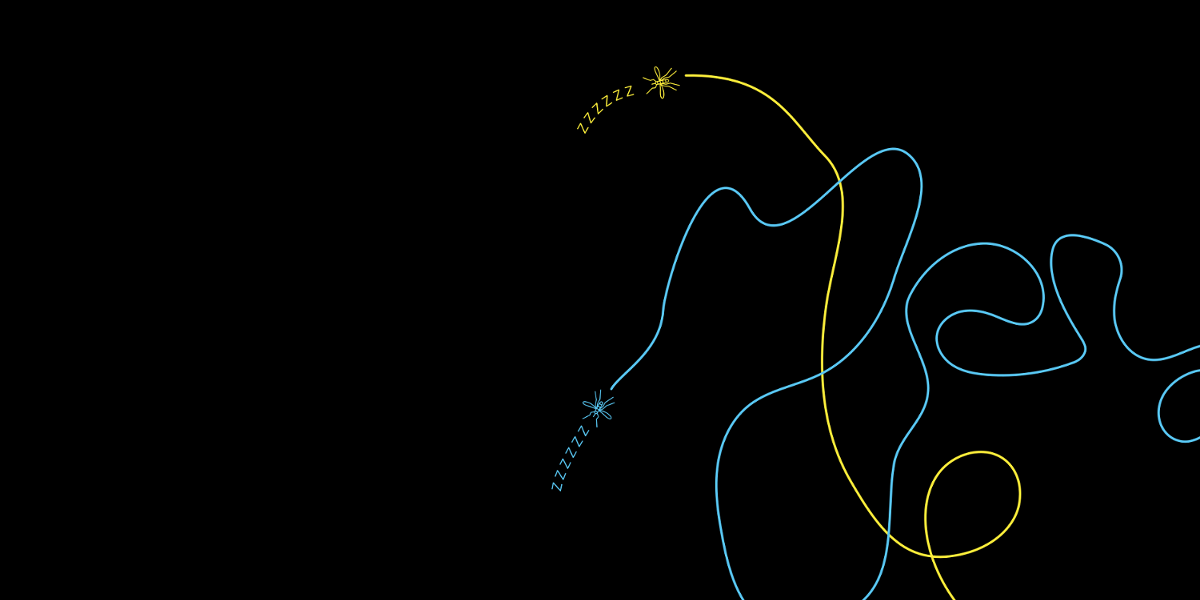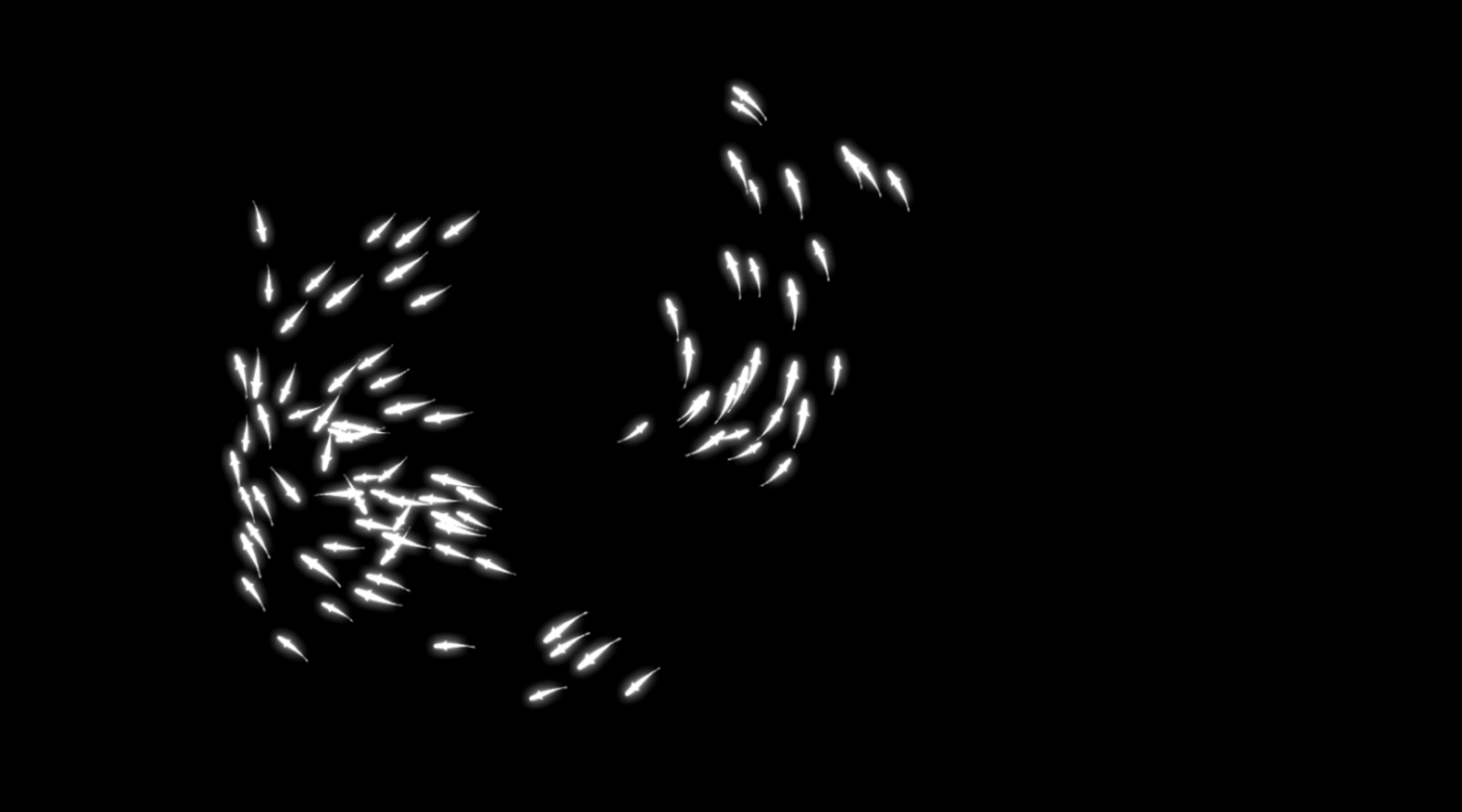Want to know how chaos theory could change the world?

Exhibit Details
Open FebNov 2021
Ground LevelLecture Gallery
- The Brief
- Let's Complicate Things
Double pendulums are strange things. One arm swinging from a fixed position is straight-forward enough. But add another arm to the first one and things start to get weird.
Predicting what a chaotic system will do is close to impossible, but don’t let that stop you from trying.
Delve Deeper
A nonlinear system such as a double pendulum is highly sensitive to initial conditions. This means that even a minor change to an input (say the starting position of the pendulum’s arms) can result in large differences in a later state (like the pattern traced by the arms).

Despite the behaviour of the double pendulum being deterministic—its future behaviour is fully determined by its initial conditions, with no random elements involved—predicting what pattern the arms will trace is extremely difficult, if not impossible.
Read more about the connection to non-linearity here.
Chaos Theory
A system’s sensitive dependence on initial conditions is often referred to as the butterfly effect. The idea is that a butterfly flapping its wings in an Amazon rainforest can eventually, through countless compounding effects, cause a tornado in another country weeks later. This metaphor refers to the title of a talk called “Predictability: Does the flap of a butterfly’s wings in Brazil set off a tornado in Texas?” given in 1972 by Edward Lorenz, a meteorologist and the founder of modern chaos theory.
Causal determinism
Causal determinism (or physical determinism) is the philosophical view that any state (of an object or event) is completely determined by prior states.
In 1814, Pierre Simon Laplace published A Philosophical Essay on Probabilities where he articulated causal determinism:
“We may regard the present state of the universe as the effect of its past and the cause of its future. An intellect which at a certain moment would know all forces that set nature in motion, and all positions of all items of which nature is composed, if this intellect were also vast enough to submit these data to analysis, it would embrace in a single formula the movements of the greatest bodies of the universe and those of the tiniest atom; for such an intellect nothing would be uncertain and the future just like the past would be present before its eyes.”
Is the universe just one big double pendulum?
Discover more
Watch:
- Three double pendulums with near identical initial conditions diverge over time, displaying the chaotic nature of the system
- Interactive double pendulums
- Design your own double pendulum
Read:
Listen:
Credits
- Exhibition Studios Build













